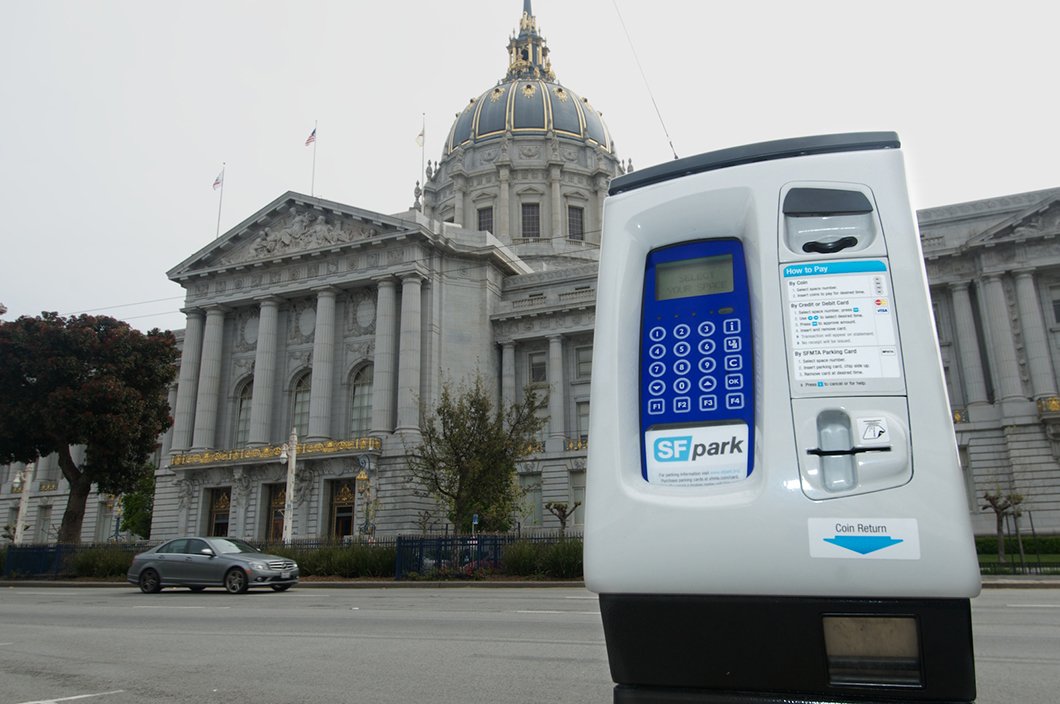2012: San Francisco, United States

San Francisco is becoming a model of how to work successfully with businesses and community groups to phase in and scale up sustainable transportation policies that make an immediate local and citywide impact.
The San Francisco government has worked on two major sustainable transportation initiatives over the past few years (and much more) that is capturing imaginations locally and around the world. First, the city has worked with local business and community groups to phase in SFPark, a smart approach to parking management in commercial districts around the city. Second, the city’s innovative Pavement to Parks program has created new street plazas and many new parklets (sidewalk platforms that replace car parking spaces) by reclaiming street space in partnerships with businesses and other community groups around the city. The parklets program has captured international attention, prompting a host of other cities to begin their own programs, from New York City to Vancouver. In the wake of these successes, San Francisco has also begun upgrading and expanding its bike network to attract riders of all ages, setting an ambitious target of 20% of all trips by bicycle by 2020. The City is also implementing slow speed zones around all city schools, and is in the process of figuring out how to expand its popular Sunday Streets program (ciclovia recreativa) to meet the demand for a weekly program.
